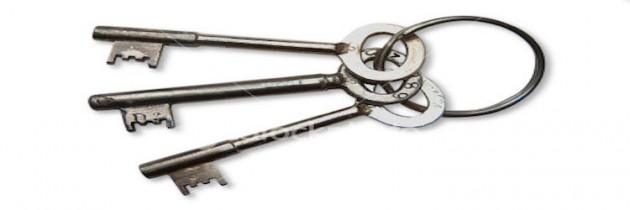3 Top Keys to Prevent Inflammation
Remember the last time you stubbed your toe? Had a head cold or an athletic injury? THAT is inflammation. Can inflammation be a good thing? Yes, in its simplest sense, inflammation is a tactic of our immune system to help us heal. Our bodies use inflammation to repair damaged tissue and to eradicate bacteria and viruses, for example.
Inflammation, however, can be a two-edged sword. There are two types of inflammation: acute and chronic (or silent). Acute inflammation gets your attention right away such as with an athletic injury – it hurts. But silent inflammation is a result of our immune system that goes out of control. It is much like putting gasoline on an already burning fire. It is insidious because it goes on 24 hours a day. You cannot feel silent inflammation until the cumulative damage begins to talk to us, if you will, in the form of diabetes, arthritis, weight gain, heart disease, Alzheimer’s Disease, cancer, faster aging, symptoms and much more.
Dr. Barry Sears, Ph.D. says it best in his groundbreaking book, ‘The Anti-Inflammation Zone’ “Silent inflammation is simply inflammation that falls below the threshold of perceived pain.”
What is the pay-off for reducing or preventing inflammation? You will think with clarity, have more energy, and prevent illness, disease and symptoms and as an added bonus? You will look younger, healthier and more vibrant.
Cooling the heat of inflammation starts with these three tips:
Tip One: Avoid Foods That Trigger Inflammation.
The first step in cooling the heat of inflammation on a cellular level is to pay attention to your diet. Avoid the following foods:
- Poor fats: Polyunsaturated vegetable oils such as cottonseed, safflower, corn, sunflower oils and commercially prepared peanut butter.
- Partially hydrogenated Vegetable Oil(trans fat) found in many packaged and processed foods, deep fried foods, fast foods, commercial baked goods and those prepared with partially hydrogenated oil, margarine and vegetable shortening.
- Sugars of all varieties including fruit juice.
- Refined carbohydrates such as white flour products, white rice, and white bread, desserts and processed foods.
Tip Two: Exercise is Powerful.
Exercising only occasionally can trigger inflammation but a consistent program most days of the week is a powerful tool in preventing and reducing the inflammatory response. There is a strong correlation between exercise and reducing whole body inflammation. The use of exercise is key in creating optimal health and longevity.
For example, exercise can prevent heart disease which is now thought to be a result of poor lifestyle choices and these choices can lead to not only heart disease, but other inflammatory conditions as well. Many studies have found that exercise reduces C-reactive protein, and other inflammatory compounds. Exercise also raises your good cholesterol (HDL), helps with anxiety and depression, builds strong muscle and bone which is important to optimal health, and has a tremendous impact on our emotional health as well.
Tip Three: Supplements Are Necessary.
If you want to fight disease and achieve maximum life span, you can’t do it with diet alone. You need the extra nutritional boost that only supplements can provide.
We are a nation plagued with nutrient deficiencies for a variety of reasons. Poor diet stands at the forefront but stress, allergies, pollution, smoking, and allergies, all contribute to a lack of optimal health. Depending on how long our food is stored, the amount of pesticides used, whether organic or conventional, and often our conventional food is grown in nutrient-depleted soil. And lastly, some individuals require more of certain nutrients than others.
We need to ensure that our antioxidant and nutrient intake is high to help keep inflammation in check. In doing so, you will not only protect against deficiency but create optimal health as well.
The following supplements are key in preventing or reducing inflammation:
- Multiple Vitamin/Mineral
- B-Complex Vitamin (100 mg)
- Vitamin C (2,000 mg)
- Resveratrol (150 mg)
- Alpha Lipoic Acid (50 mg)
- CoQ10 (100 mg)
- Calcium/Magnesium (1,000 Calcium/600 Magnesium)
- Curcumin (150 mg)
By Eating foods high in antioxidants, avoiding processed foods, drinking plenty of water and exercising regularly will all help with the healing process by reducing inflammation in your body.
Avoiding foods that trigger the inflammatory response, exercising and adding supplements, you will profoundly prevent and reduce inflammation.
The upshot of implementing these 3 tips? A longer, healthier, youthful and more vital life.
~Lori





